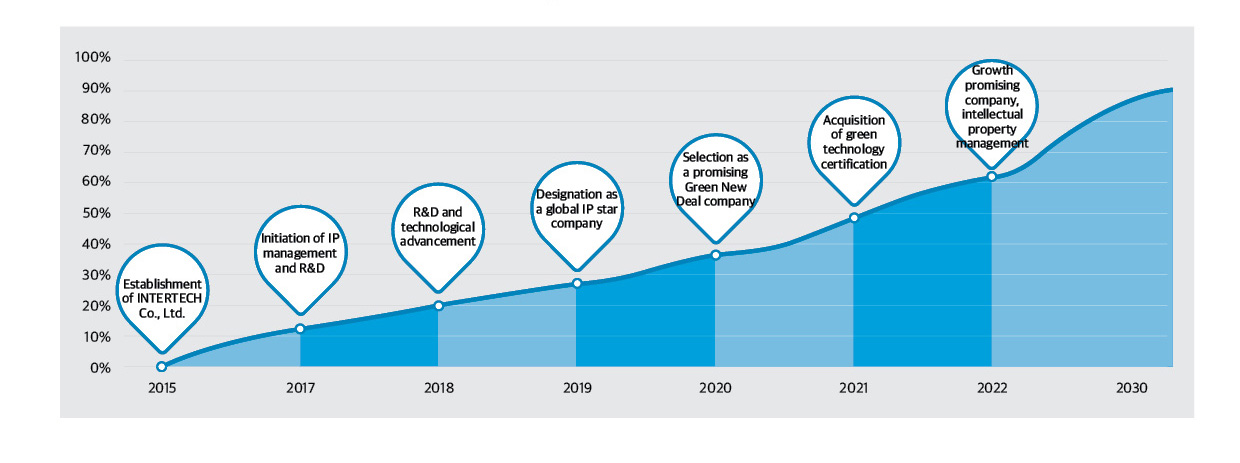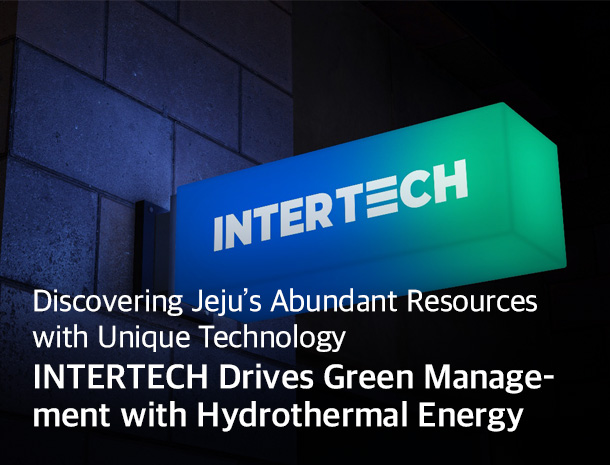Introduction of Companies
- Home
- Jeju Life
- Introduction of Companies
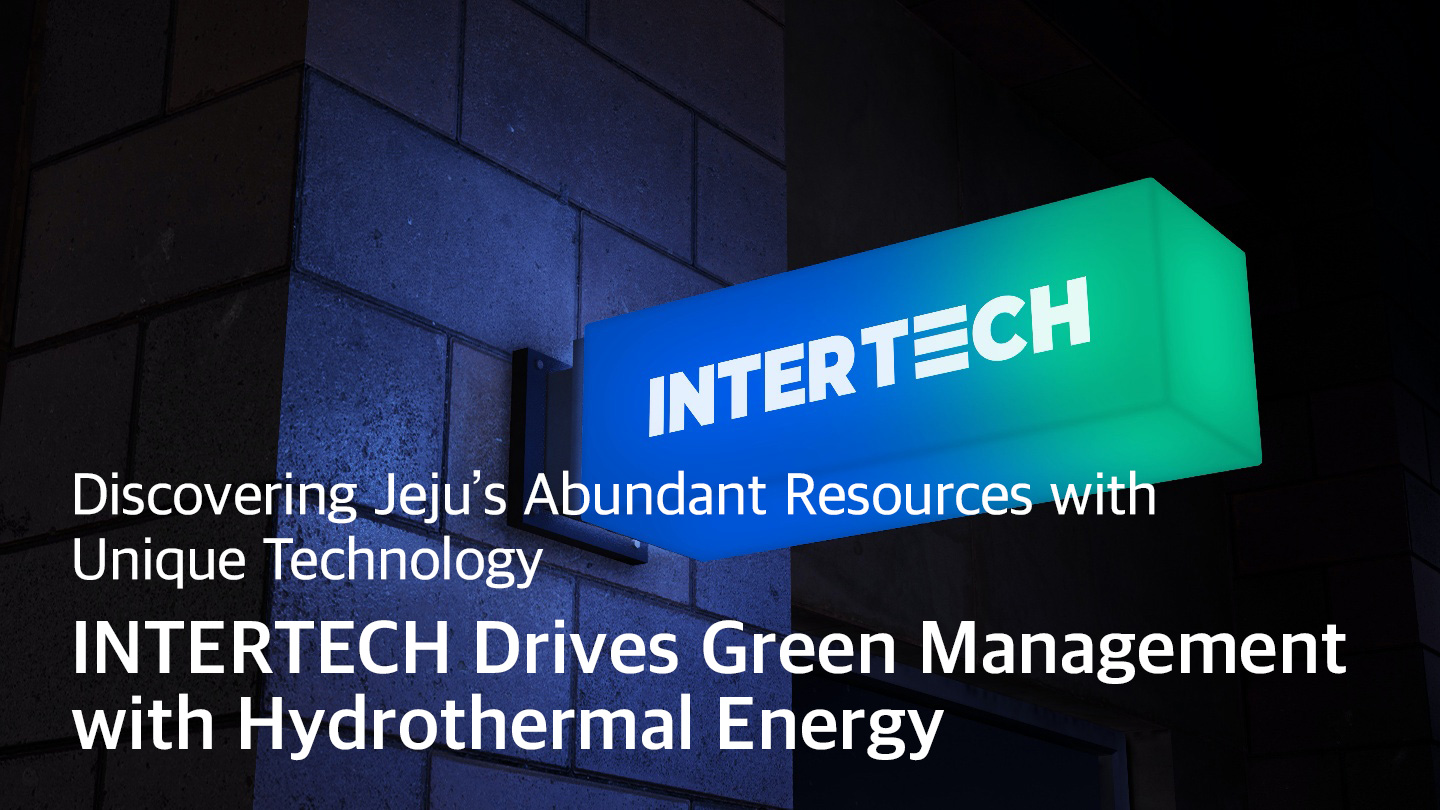
"To address the supply instability of solar and wind energy, we focused on thermal energy, particularly hydrothermal sources. Utilizing P2H (Power-to-Heat) technology, we have introduced various platforms and technologies to reduce heating and cooling costs and address power output curtailment[1]. Prime examples include heat exchange heat pumps[2] and high-efficiency heating and cooling systems tailored to Jeju's environmental characteristics. Recently, we have developed technology that harnesses thermal effluent[3] from power plant wastewater to benefit farms, earning green technology certification from the Ministry of Agriculture, Food and Rural Affairs. INTERTECH remains committed to advancing research and technology development for better use of renewable energy sources."
Lim Yeon-ju, CEO of INTERTECH
[1] The direct or indirect reduction of power output from generation facilities when renewable energy generation exceeds demand. This is common in solar and wind energy farms, which are heavily influenced by weather conditions. The downside is the difficulty of ensuring a reliable and consistent power supply.
[2] A device used to transfer thermal energy from one location to another. While heat typically moves from high to low temperature areas naturally, a heat pump reverses this process, transporting heat from lower to higher temperature areas.
[3] Water discharged after being utilized to cool steam in power plants. This water, approximately 7–8°C warmer than the surrounding seawater, is beneficial for year-round agricultural production or various applications such as botanical gardens. It is classified as renewable energy.
|
Hydrothermal energy: a solution to the challenges of renewable energy curtailment |
Established in 2015, INTERTECH is a renewable energy company specializing in the thermal energy sector. It focuses on developing relevant technologies and providing tailored consulting services to consumers. Thanks to its successful track record in various R&D projects and its contribution to job creation, INTERTECH earned recognition from the Ministry of SMEs and Startups as a "Management Innovation Business (MAIN-BIZ)." In 2020, INTERTECH distinguished itself among more than 290 companies nationwide, becoming Jeju's sole representative in the "Top 100 Promising Green New Deal Companies." Here is the story of INTERTECH, a company at the forefront of green management, leveraging hydrothermal energy, one of the next-generation renewable energy sources.
Q Among various renewable energy sources, you've focused on hydrothermal energy. Could you tell us more about the background of starting renewable energy projects in the thermal sector in Jeju?
The amount of renewable energy generated in Jeju increased significantly from 2,662 GWh in 2021 to 2,996 GWh in 2022. However, the utilization of hydrothermal-based heating and cooling systems in Jeju remains low, around 1%, compared to 10% inland. Despite being surrounded by the sea, which indicates an optimal environment, the low utilization suggests a lack of technology tailored to Jeju's environment, inadequate infrastructure, and regulatory hurdles. INTERTECH aims to harness Jeju's abundant underground resources by developing proprietary technology and focusing on the development of hydrothermal-related systems and platforms, as well as enhancing construction capabilities.
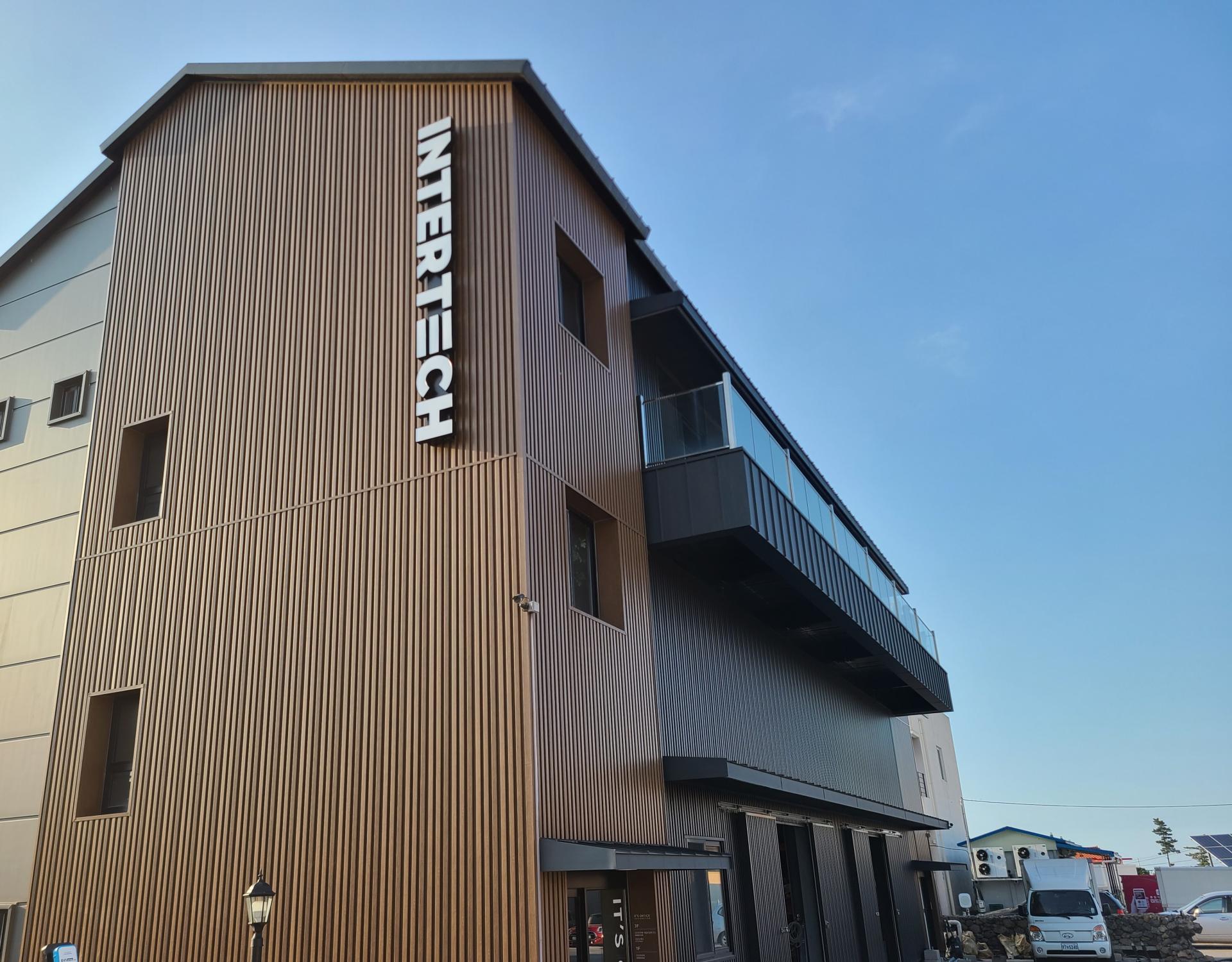
A panoramic view of INTERTECH
Q What are the advantages of hydrothermal energy compared to other renewable energy sources?
Hydrothermal energy utilizes heat from water, providing clean energy that can be used for cooling in the summer when water temperatures are lower than the atmosphere and for heating in the winter when water temperatures are higher than the atmosphere. Unlike other energy sources such as solar and wind, hydrothermal energy is less affected by weather conditions, making it less prone to output curtailment. It also generates minimal noise and waste during facility construction.
Q Despite Jeju's unique characteristics as an island and the highest rainfall area in the country, hydrothermal energy utilization is lower compared to inland. What are the reasons and solutions for this?
The lack of technology suited to Jeju's volcanic terrain and restrictions on groundwater usage have led to few practical applications. To overcome this, we have focused on developing hydrothermal heating and cooling systems tailored to Jeju's environment. Furthermore, we have proposed amendments to local ordinances to ease existing regulations for successful dissemination and adoption.
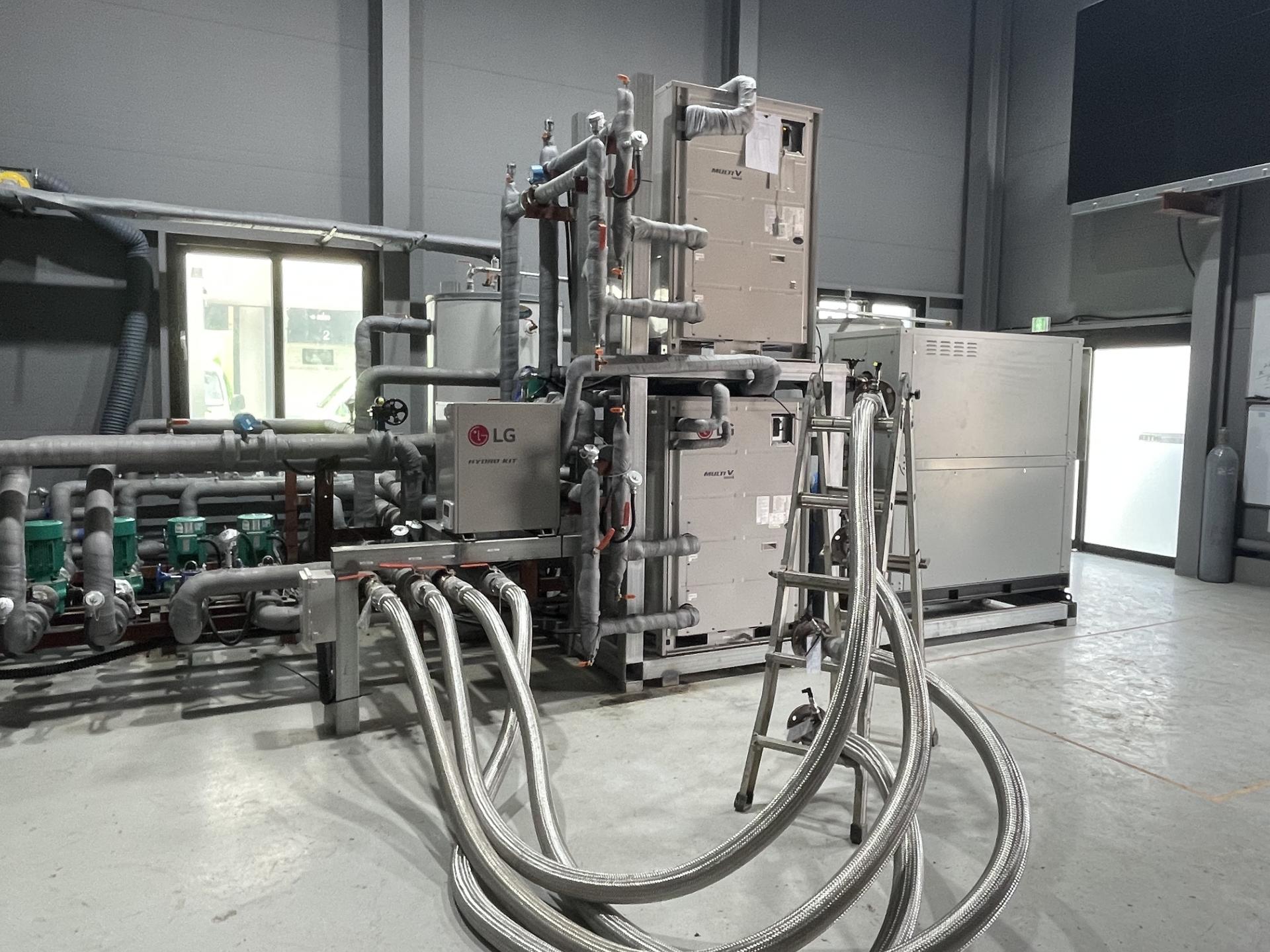
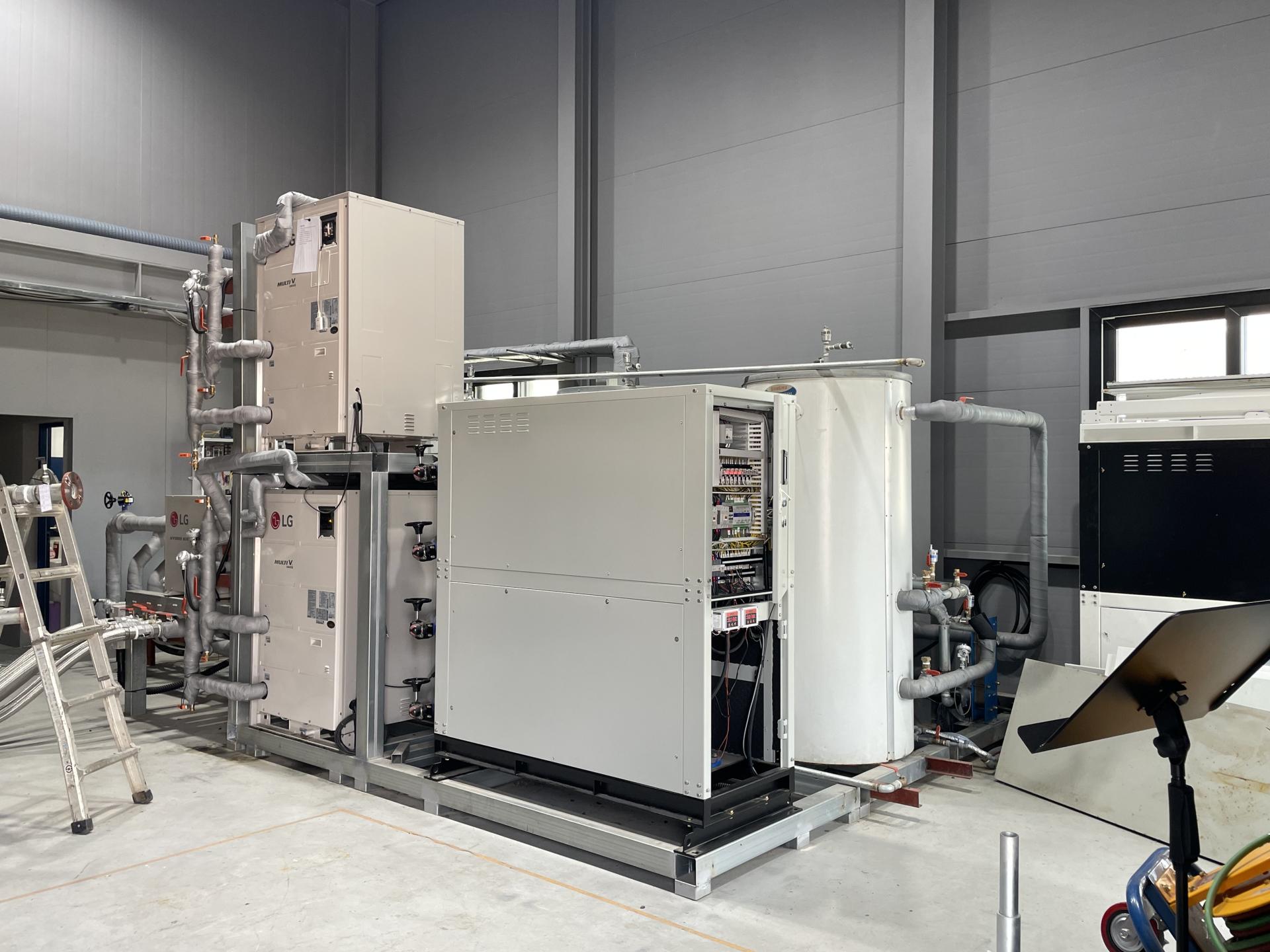
|
A thermal energy solution that considers both environmental and energy aspects |
Q In 2020, you were honored as the sole Jeju-based company among the Top 100 Promising Green New Deal Companies. As a renewable energy company, what significance does this accomplishment hold, and what new technologies or services have you introduced?
This milestone marked a significant step forward for us as a renewable energy company aiming to strategically address climate change and environmental challenges. In the same year, we developed and introduced a "high-efficiency reverse return heat exchanger," specifically tailored to Jeju's environmental conditions. This innovative system, comprised of supply pipes, return pipes, reverse pipes, and coil pipes, optimizes energy usage in confined spaces. We tackled the challenge of heat exchange reduction due to flow imbalances by implementing the reverse return method to ensure equal-length pipe design. Moreover, conventional heat exchangers made of PE (polyethylene) had the drawback of being easily corroded. When buried exchangers were removed for maintenance, they were prone to breakage, leaving residual materials in the soil and raising concerns about environmental contamination. In contrast, our newly developed exchanger is made of STS304 (stainless steel), which is highly resistant to corrosion and has excellent formability, minimizing the risk of damage during maintenance. Its modular assembly (coil-type and module connection) structure allows for easy disassembly and transportation. Additionally, our groundwater-based submerged system boasts a smaller footprint relative to energy production and exceptional heat transfer efficiency, making it effective in Jeju's basalt terrain, characterized by a porous structure.

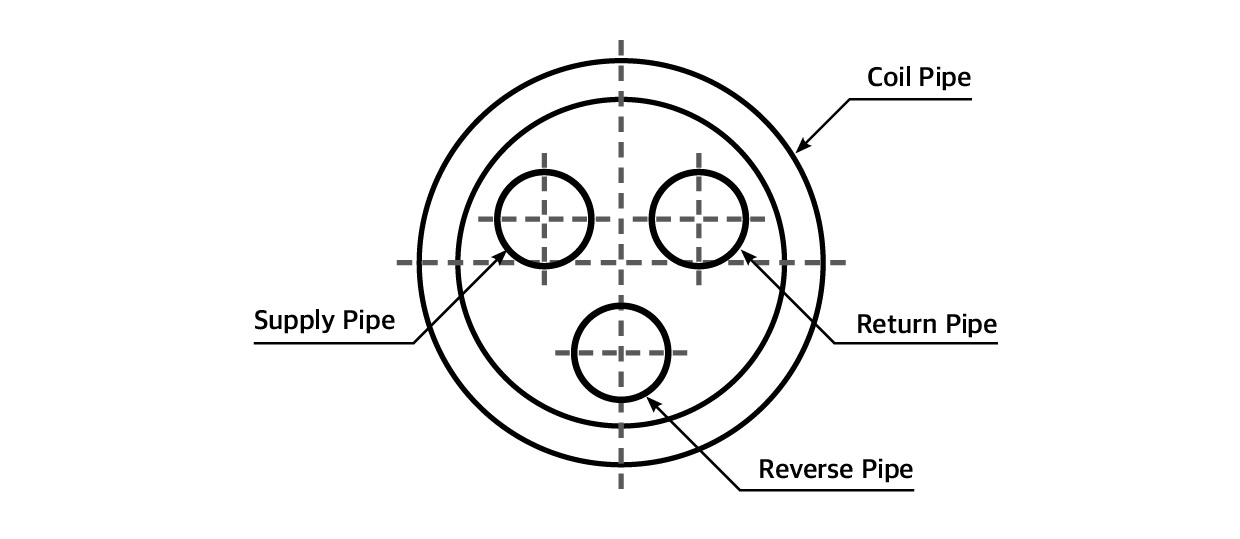
Q What distinguishes the recently introduced 'groundwater heat pump' from existing products?
Compared to conventional heat pumps, it is approximately 35% smaller in size, yet it delivers superior cooling and heating capacity and consumes less power. Its advantage lies in its ability to accommodate more units in limited spaces. Moreover, it integrates wireless communication capabilities for remote network control. Notably, internal modules are autonomously regulated based on refrigerant and circulating water temperatures, offering a broad energy adjustment range. These features enable approximately 80% energy savings compared to conventional fuel boilers and around 66% savings compared to off-peak electric boilers.
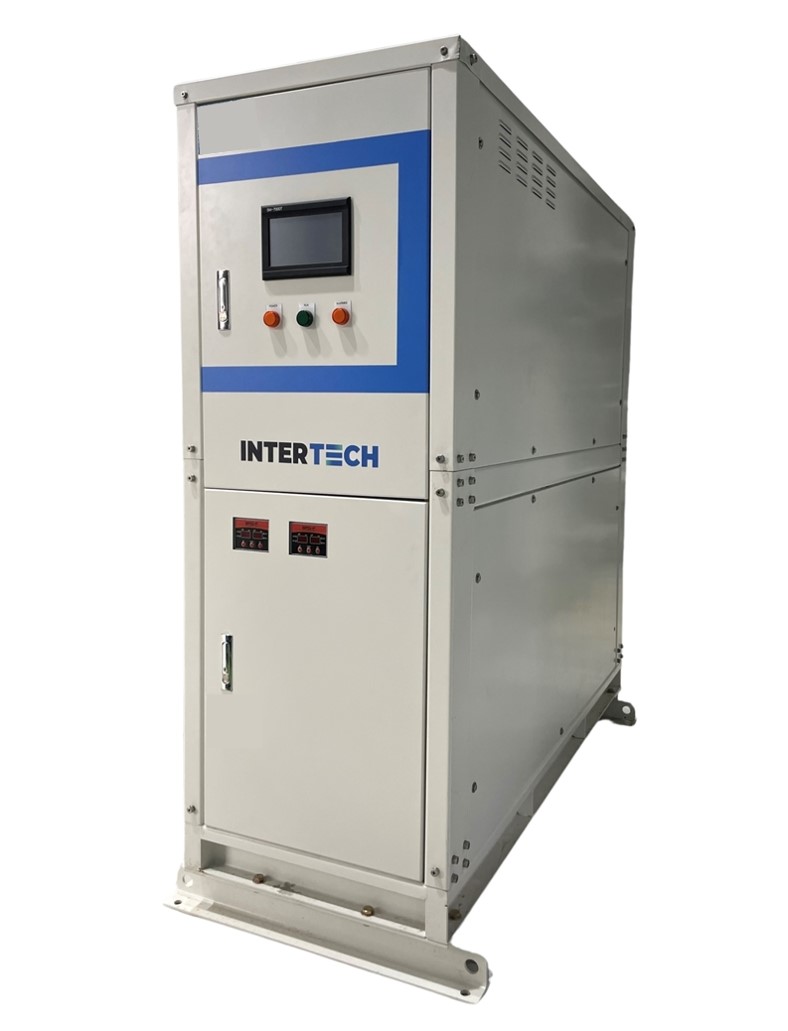
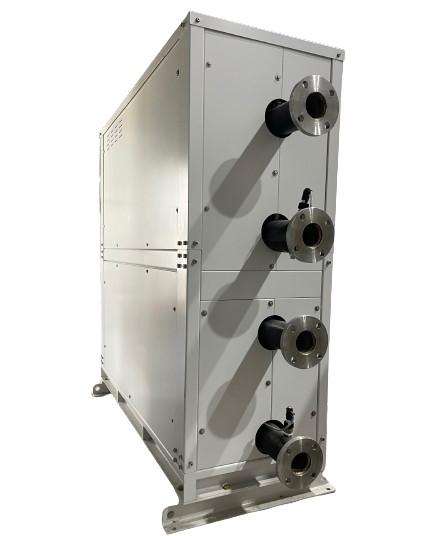
|
Advancing the 'Carbon-Free Jeju Island by 2030' vision with hydrothermal energy |
Q Have there been any collaborations with local government agencies and companies to promote hydrothermal systems in Jeju?
As part of the Jeju Energy Corporation consortium, we are collaborating on decarbonization research with Jeju National University's Industry-Academia Cooperation Foundation, the Korea Institute of Energy Research, and Hanwha Energy. Additionally, we have installed a geothermal cooling and heating system with a capacity of 250RT (air-source 170RT, ground-source 80RT) at the Seogwipo Agricultural Technology Center's greenhouse. Planned demonstration areas include the livestock facility "Aewol Papas" and the accommodation facility "Hanwha Resort," where we will deploy INTERTECH's geothermal system and assess carbon reduction and energy savings pre- and post-implementation.
Q In your 2021 future business plans, you mentioned establishing a P2H-based microgrid utilizing Jeju's hydrothermal energy. Could you provide an update on the progress and any outcomes achieved so far?
As part of a Green New Deal R&D initiative, we have successfully implemented a groundwater heat pump system in three agricultural facilities. Additionally, we've implemented an integrated operational management system for real-time monitoring of energy consumption, temperature, and humidity. This has led to improved reliability and usability, validated through response speed and loss rate testing.
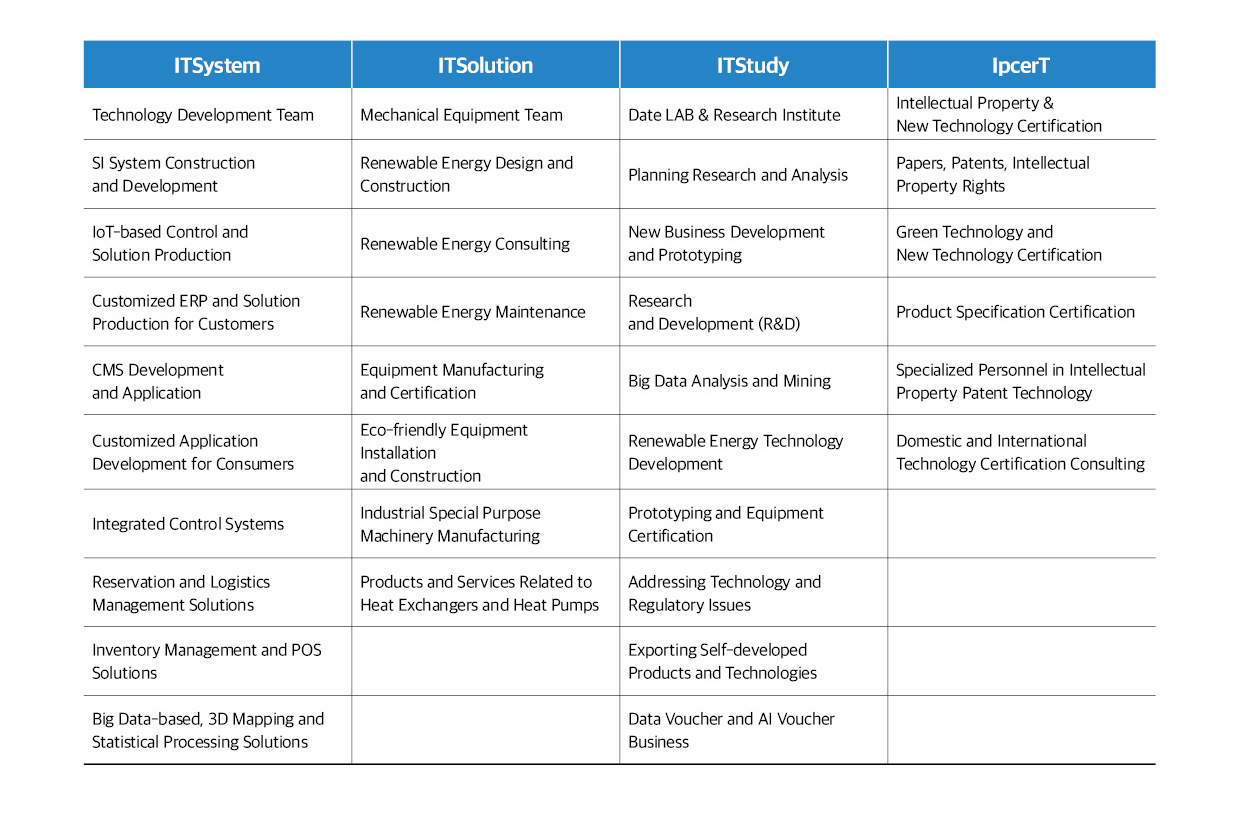
Q What are INTERTECH's short and long-term plans and goals regarding the hydrothermal energy business?
As demand grows for eco-friendly cooling and heating systems, local companies are increasingly seeking related production and maintenance services. With Jeju pushing for the mandatory installation of renewable energy facilities and the imminent designation of distributed energy special zones, we anticipate a steady rise in related demands. While our focus has been on supplying large-scale cooling and heating systems to agricultural and industrial facilities, there is an emerging need for small-capacity products for residential facilities. In response, INTERTECH aims to develop 30RT-capacity heat pumps to enhance our business competitiveness. Additionally, we plan to register our products with the Public Procurement Service and leverage benefits related to supplying public institutions to pave the way for improving groundwater-related regulations. Through these initiatives, we anticipate not only a reduction in energy import dependence but also the stimulation of mid-to-long-term investments in renewable energy and job creation.
